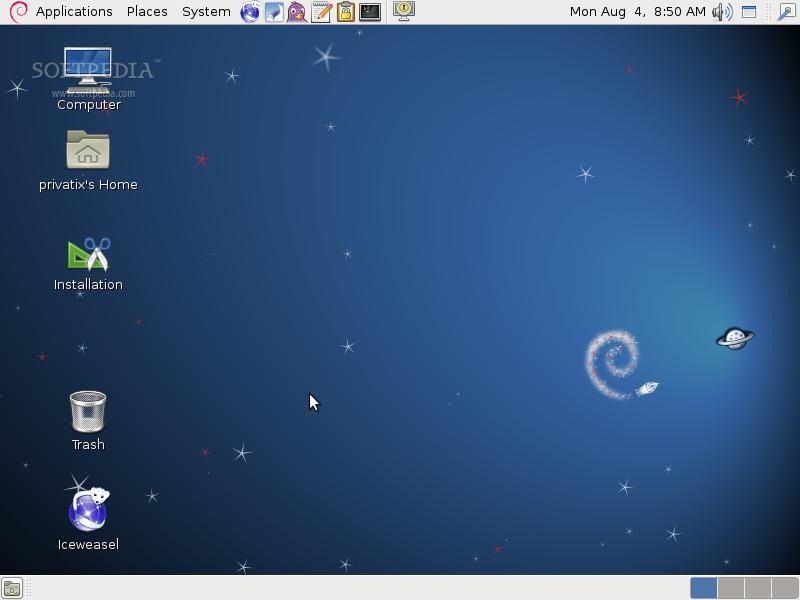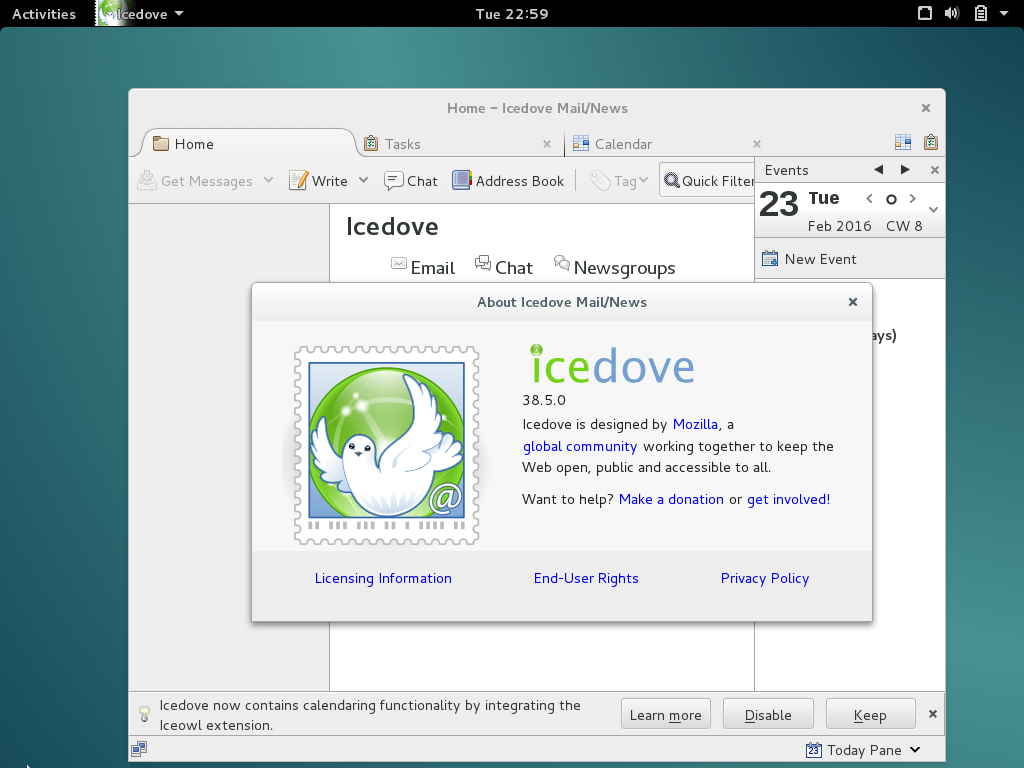GNUzilla is the GNU version of the Mozilla suite, and GNU IceCat is the GNU version of the Firefox browser. Its main advantage is an ethical one: it is entirely free software. While the Firefox source code from the Mozilla project is free software, they distribute and recommend nonfree software as plug-ins and addons. Also their trademark license imposes requirements for the distribution of modified versions that make it inconvenient to exercise freedom 3.
Privacy protection features

Cool Encrypter/Decrypter is a text encrypter that is used to send free encrypted messages to your friends. It encrypts the message right before your eyes with a cool display like in spy movies. To prevent Tails from running out of memory and crashing, download very big files to the Persistent/Tor Browser folder. All the files that you download outside of the Persistent Storage are stored in memory (RAM), which is more limited. Explains how to run Mozilla firefox from the command prompt (bash shell) under Linux, macOS,.BSD, or UNIX like operating systems. Oct 21, 2020 Dumpzilla - extract all forensic interesting information of Firefox, Iceweasel and Seamonkey browsers; hindsight - Internet history forensics for Google Chrome/Chromium; unfurl - Extract and visualize data from URLs; Timeline Analysis. DFTimewolf - Framework for orchestrating forensic collection, processing and data export using GRR and Rekall.
- LibreJS: GNU LibreJS aims to address the JavaScript problem described in Richard Stallman's article The JavaScript Trap.
- Https-Everywhere: Extension that encrypts your communications with many major websites, making your browsing more secure.
- SpyBlock: Blocks privacy trackers while in normal browsing mode, and all third party requests when in private browsing mode. Based on Adblock Plus.
- AboutIceCat: Adds a custom “about:icecat” homepage with links to information about the free software and privacy features in IceCat, and checkboxes to enable and disable the ones more prone to break websites.
- Fingerprinting countermeasures: Fingerprinting is a series of techniques allowing to uniquely identify a browser based on specific characterisics of that particular instance (like what fonts are available in that machine). Unlike cookies, the user cannot opt-out of being tracked this way; so the browser has to avoid giving away these kinds of hints.
Downloads

Official releases of IceCat
They are available from ftp.gnu.org, or any GNU mirror. Please use a mirror if possible. Besides the sources, binary packages for GNU/Linux (32 and 64 bit) are available.
IceCat is generated from Firefox with the scripts available in the Git repository of GNUzilla.
Note that building binary packages for Windows and MacOS currently requires nonfree software, so we no longer distribute binary packages for those platforms.
Free add-ons and plugins
- We maintain a list of free addons.
- GNUzilla runs its own plugin finder service at
gnuzilla.gnu.org.
Language packs
You can find langpacks for IceCat on ftp.gnu.org, in the langpacks directory for a given release.
These langpacks are generated automatically from the original Firefox ones, if you notice problems in your locale, please let us know at the <bug-gnuzilla@gnu.org> mailing list.
Online help and documentation
Community driven manuals are available at LibrePlanet.
Mailing lists
The GNUzilla project uses a number of mailing lists, as follows:
- help-gnuzilla (archives): general discussion and requests for help about GNUzilla and IceCat;
- bug-gnuzilla (archives): bug reports and feature requests for GNUzilla and IceCat;
- gnuzilla-dev (archives): development discussion around GNUzilla and IceCat.
To subscribe to the mailing lists, you may either use the mailman web interface (click on each list name and follow the instructions), or send an empty email with a Subject: header line of just “subscribe” to listname-request@gnu.org, replacing listname with any of the list names above (e.g. help-gnuzilla).


Found a bug? Have a suggestion? Please report it to the bug-gnuzilla list, trying to specify all the information that could be involved: platform, program version (the command icecat --version will report this), and build tools version if building from source code. Please report both the observed and the expected behaviors.
Getting involved
Development of IceCat, and GNU in general, is a volunteer effort, and you can contribute. For information, please read How to help GNU. If you'd like to get involved, please join our mailing lists and say hi!
- Maintainers
- The GNUzilla project is currently maintained by Ruben Rodriguez, Amin Bandali, Mike Gerwitz, and Mark H. Weaver. Please use the mailing lists for contact.
Origin of the name
The name “IceCat” was coined to show our relationship to the Mozilla Firefox browser. Ice isn't Fire and a Cat isn't a Fox, so it is clearly a different package (we don't want Mozilla blamed for our mistakes, nor cause confusion with their trademarks), but is equally clearly intimately related (of course nearly all of the work comes from the Mozilla foundation effort, so we want to give credit).
The gNewSense BurningDog browser and the Debian IceWeasel browser are similarly derived from Firefox, also with the intent of being free software. Technically, however, these projects are maintained entirely independently of IceCat. (Previously, this GNU browser project was also named IceWeasel, but that proved confusing.)
About GNU and the GNU Philosophy
The GNU Project was launched in 1984 to develop a complete Unix-like operating system which is free software—free as in freedom, not price. Its principal sponsor is the Free Software Foundation.
The free softwarephilosophy is the root and motivation of the guidelines and goals ofthe whole free software movement, a worldwide community.
Iceweasel Icon
Please join us!
